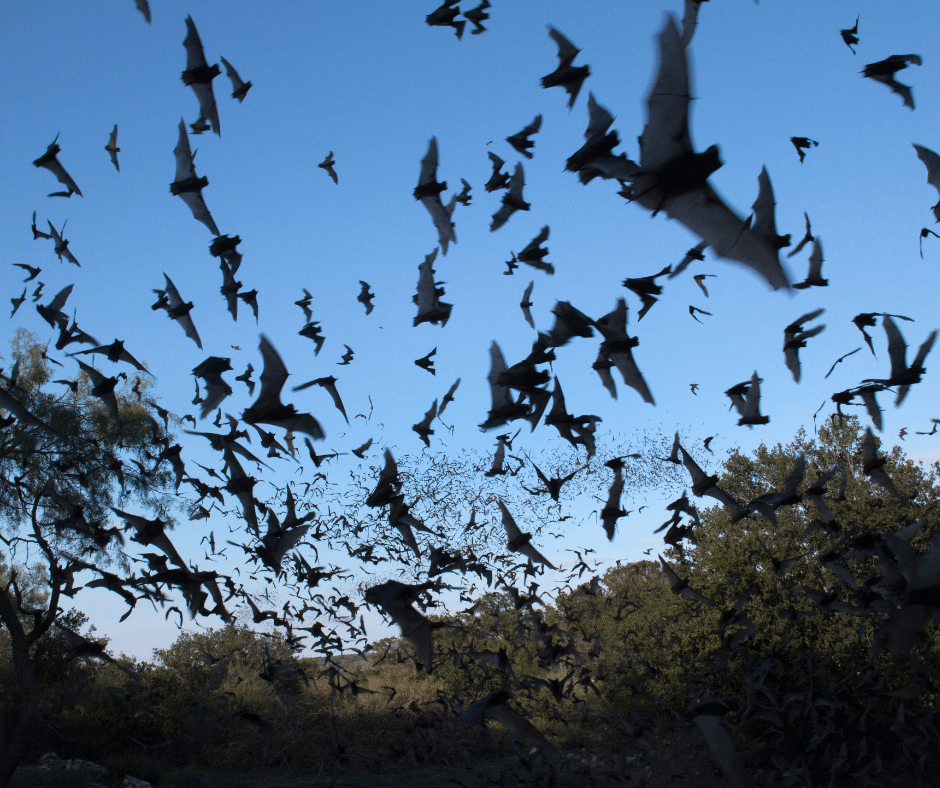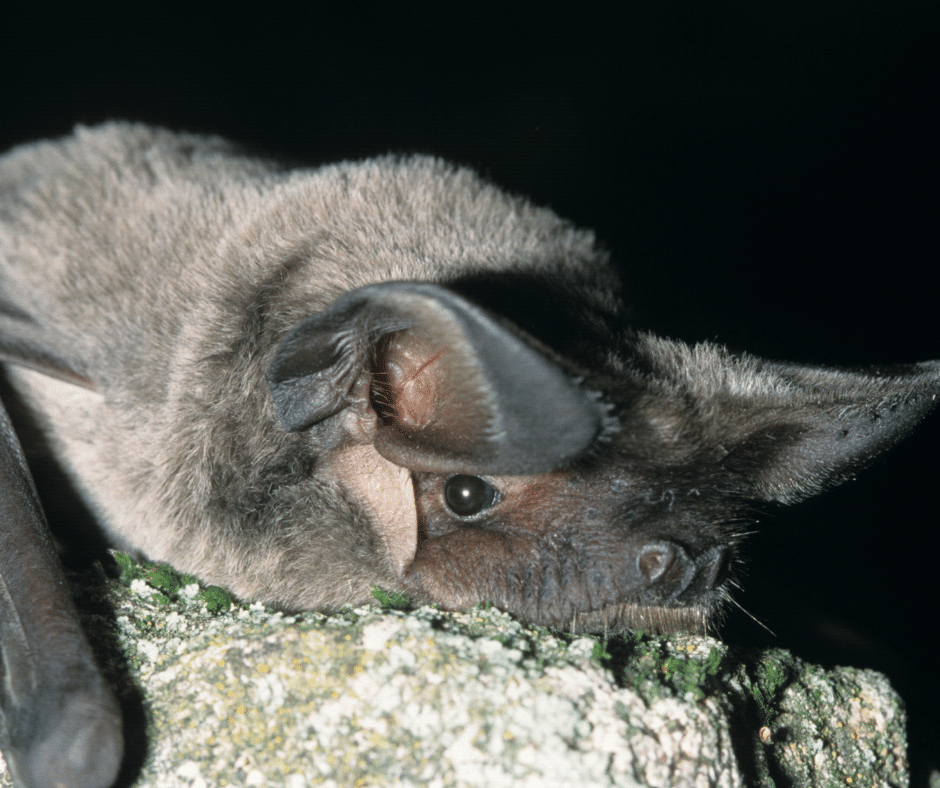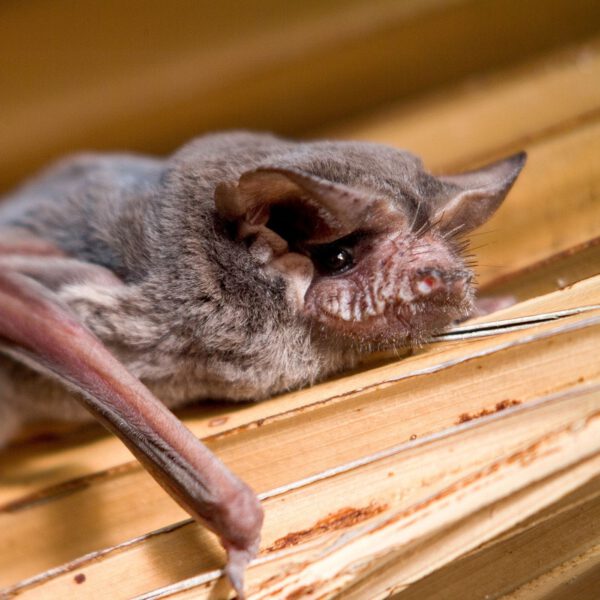Welcome to learning more about the Mexican Free-Tailed Bat. They are medium-sized bats found in the United States, Mexico, Central America, and South America. And they can roost anywhere from your home’s attic to caves, under bridges, and abandoned buildings. What’s more, they are the fastest of all the bats.
And the only natural predators are the smaller animals that manage to find a roost, like snakes, raccoons, owls, and cats.
Good News About These Bats
Would you ever assume these creepy-looking bats have beneficial qualities? Well, they certainly do. And here is what we mean.
They Are Natural Pest Eliminators
There is no doubt, bats eat bugs, and we mean tons of bugs. In fact, farmers are grateful to the bats in their areas because bats save them millions of dollars in pesticides per year.
They are Great Pollinators as Well
Have you ever been curious as to why the brand Bacardi rum features the Mexican free-tailed bat on the bottle? According to Inaturalist.org, “Don Facundo’s wife, Amalia, who suggested using a bat for the company logo. It was an insightful choice, because according to Cuban and Spanish lore, bats symbolize good health, good fortune and family unity.”
Not to mention, they are the primary pollinators of sugar cane, and their consumption of insects that damage sugar cane is helpful as well.

Mexican Free-Tailed Bat Facts
Mexican Free-Tailed Bats are varied in color from reddish to dark brown and gray. Their ears are broad, black, and point forward. They have wrinkled lips, and their tails reach more than one-third past the tail membranes themselves. Additionally, their wins are long and thin.
Oh, and the bat happens to be the only mammal that can fly. Besides, they are more maneuverable in flight than birds.
- Wingspan: 12 to 14 inches
- Weight: approximately half an ounce
- Tails: longer than 1 – 1.5 inches
- Life Span: up to 18 years
Mexican Free-Tailed Bat Behavior:
The Mexican Free-Tailed Bat is one of the most abundant mammals in North America. In fact, San Antonio, Texas, has the densest concentration of these bats in Bracken Cave. And these bats are not currently threatened or endangered.
Diet:
Bats are nocturnal, flying around at night and hanging in dark and secluded places during the day. You see, at night, they have fewer predators to contend with as they search for food. It only makes sense.
One of the most exciting bat facts remains how they use ultrasonic signals, called echolocation, to locate objects in the dark. Echolocation is how they navigate the world at night and look for food.
The Mexican Free-Tailed Bat eats incredible amounts of moths and insects like tiny wasps, dragonflies, flies, and leaf beetles. And one roost can contain millions of bats, all-consuming insects at night.
Reproduction:
The Mexican free-tailed bat bears one baby in the summer in warm conditions high in the rafters of caves and attics. And the females never nest in the same maternity colony as their mothers. Interestingly, the male bats roost in their own bachelor colonies.

Mexican Free-Tailed Bat Damage to the Home
If a Mexican free-tailed bat has nested in your attic, there can be extensive damage done. If they do manage to trap themselves in your attic, here is what you may see.
- Nightly noises such as clicking, popping, and scratching as bats move around.
- Large quantities of bat droppings (guano) in your attic or loft.
- A strong toxic smell that is like ammonia.
- Dark stains around small holes in your home.
- Bats flying from your home at dusk.
Worst of all would be the smell of the giant pile of urine and droppings. No one wants that from a colony of twenty Mexican free-tailed bats. Bats typically are not alone, so if you see a solo bat in your home’s attic, there are most likely others hanging around.
Get Rid of the Mexican Free-Tailed Bat Infestation
You can trust the professionals at Covenant Wildlife Removal to get rid of the Mexican free-tailed bats for good. They can do the patch and prevention work for you. Then they help to encourage the bats out safely and humanely, so they can relocate.
At Covenant Wildlife Removal, we will remove the bats, find the entry points and seal them up, and finally, clean up after them. We are fully equipped and experienced at getting to the source of the problem and eradicating the wildlife.
Mexican Free-Tailed Bat Removal Service includes:
- Exclusion
- Clean Up
- Disinfection
- Odor Removal
- Repair of the area
If you suspect you have bats in your attic or on your property, let Covenant Wildlife Removal assist you with bat removal. We are a top-rated local family-owned, full-service wildlife trapping, removal, and damage repair service company. Our professionals can remove a bat infestation before it becomes a massive problem for you and your family. And we provide humane and safe bat removal services in Jefferson and Shelby counties. Contact us to set up an inspection.
Contact us or call 205-850-5760 to set up an inspection.
